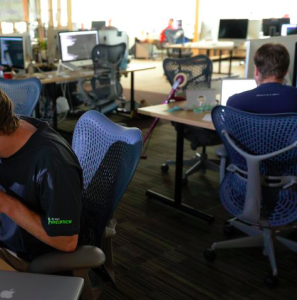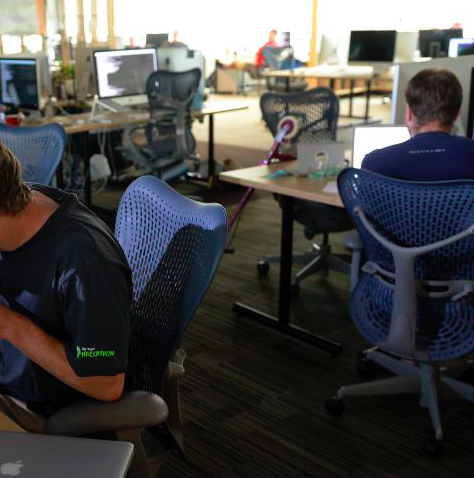Transparency is extremely important to us, so we are letting you know that we may receive a commission on some of links you click on from this page. See our disclaimer.
 Millennials not only may be more adept at social media than their more experienced office colleagues. They also may be more “tolerant of direct health guidance from employers,” according to Human Resource Executive Online. The bottom line: “A new report finds millennials more open to pro-wellness messages from employers — as well as consequences for unhealthy behavior — than older generations.”
Millennials not only may be more adept at social media than their more experienced office colleagues. They also may be more “tolerant of direct health guidance from employers,” according to Human Resource Executive Online. The bottom line: “A new report finds millennials more open to pro-wellness messages from employers — as well as consequences for unhealthy behavior — than older generations.”
The piece is based on a new AON Hewitt report, Consumer Health Mindset Study 2016, which “finds 56 percent of millennials think employers should direct participants to facilities or providers for the most appropriate care or cost, compared to 40 percent for all other generations. And nearly a third of millennials who responded say they support employers imposing consequences for less-than-healthy conditions — compared to 21 percent of Gen Xers and 14 percent of baby boomers.”
According to the study's co-lead, Joann Hall Swenson, millennials seek the same thing around health and wellness that they seek in other aspects of their experiences: Customization.
Says Swenson: “Millennials are definitely changing the game. We are going to need to think about health and wellness and engaging people in a different way. It supports the millennial data out there. This is unique in that we asked nuanced questions specifically about health engagement. Millennials highly value health and wellness programs — when they're aligned with their goals.”
But one key result from the survey seems counterintuitive to nearly everything we've heard about creating effective wellness programs historically: Communication.
While we know that effective communication is central to any successful workplace wellness approach, the definition of “effective” may be different for Millennials. For them, it seems to mean selling softly.
Swenson says: “Behaviorally, when you're inundated with information, you tend to ignore it. It's really important to be judicious about how much you're conveying. I think we have information from the health insurer and these 15 vendors and we want employees to have all these opportunities, but the consumer is thinking: ‘It's not relevant to my life right now.' That's huge for millennials. What matters is personalized information, clear guidance, not overloading and ease.”
Added Karen Marlo, vice president at the National Business Group on Health: “It's really about how we send those messages to them and how we segment them. It's not that the programs have to be unique. It's how you engage them.”




0 Comments